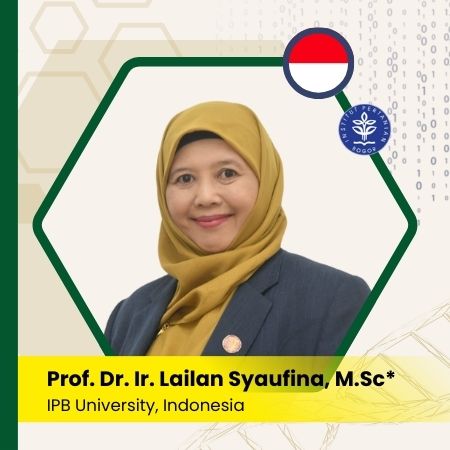Exploration of microbial antagonists in chili plants to control anthracnose disease in-vitro.
Will be presented at Friday, 23 May 2025, 13.55 (GMT +7)
Abstract
Anthracnose disease causes severe crop loss in chilli 50-100%. Farmers often use synthetic fungicide to control this disease. However, these synthetics are unsafe for human and environment. The application of microbial antagonists is expected to replace the use of synthetics. The purpose of this study was to assess several microbes obtained from chilli plants for their potential as antagonists against anthracnose disease in chili. The research was conducted at Plant Disease Laboratory, Faculty of Agriculture, University of North Sumatra in January-December 2023 through microbial isolation. Microbes producing inhibition zones were re-inoculated using streak-plate method (3 times) to obtain pure culture. Colletotrichum acutatum and C. gloeosporioides were used for pathogenicity and antagonistic tests with 3 times replications. From these in-vitro experiments, we obtained 9 bacterial isolates producing inhibition rate against C. acutatum. and 16 bacterial isolates against C. gloeosporioides higher than 60%. And we obtained 9 bacterial isolate producing inbhibition the growth of both fungal pathogens. The bacterial isolate are 11, 34, 42, 48, 58, 90, 111, 188 and 215. Antagonism assay on fungal isolates showed 2 genera producing antagonistic activity greater than 60% (Trichoderma spp., and Rhizopus spp.) and there are 5 bacterial isolates have potential to produce siderophore with mostly in coccus shape. The microbial antagonists obtained in this study are expected to have contribution in reducing anthracnose in chili higher than 60%.






























